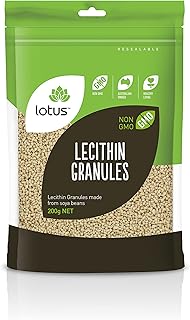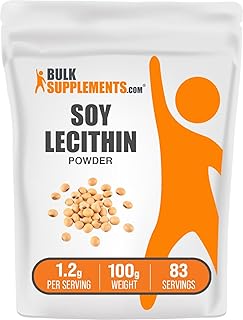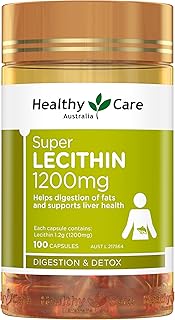Soy lecithin is a common food additive derived from soy that serves various functions in food products. Despite its widespread use, there is limited unbiased scientific information available about its health effects. Understanding what soy lecithin is and its potential benefits or risks can help consumers make informed choices.
Lecithin, including soy lecithin, is primarily used as an emulsifier, lubricant, antioxidant, and flavor protector in food. It is present in a wide range of products, from dietary supplements to baked goods and dairy items. While some concerns exist about the health implications of soy lecithin, concrete evidence supporting these claims is lacking.
Individuals looking to manage their cholesterol levels may consider incorporating soy lecithin into their diet. Studies suggest that soy lecithin could potentially help reduce LDL cholesterol without affecting the beneficial HDL cholesterol levels. This cholesterol-lowering effect has been observed in both animal and human studies.
Moreover, soy lecithin contains choline, an essential nutrient crucial for various bodily functions, including neurotransmitter production. Choline deficiency can lead to serious health issues like organ dysfunction and fatty liver. By consuming soy lecithin, individuals can boost their choline intake and mitigate the risks associated with choline deficiency.
Despite being derived from soy, soy lecithin is generally considered safe for consumption, even by individuals with soy allergies. The allergenic components are typically removed during the manufacturing process, minimizing the risk of allergic reactions. However, those with severe soy allergies should exercise caution when consuming products containing soy lecithin.
Concerns have been raised about the use of genetically modified soy in soy lecithin production. To address this, consumers can opt for organic products that are made using organic soy lecithin. Additionally, the extraction process of lecithin from soy may involve chemical solvents like hexane, which could be a potential concern for some individuals.
While soy lecithin is a widely used food additive, its efficacy as a supplement is still under scrutiny due to limited research. However, the presence of choline in soy lecithin highlights its potential benefits, encouraging individuals to explore this additive as a dietary supplement. Ultimately, consumers should weigh the potential advantages and drawbacks of soy lecithin based on their individual health needs and preferences.
📰 Related Articles
- Soy Consumption: Benefits, Risks, and Optimal Choices Explained
- Saunas and Cold Plunges: Benefits, Risks, and Considerations
- Soy Milk: A Nutritious Dairy-Free Alternative with Health Benefits
- Investing in Silver Bullion: Benefits, Risks, and Market Dynamics
- French Health Agency Warns Against Soy Products Over Health Risks






